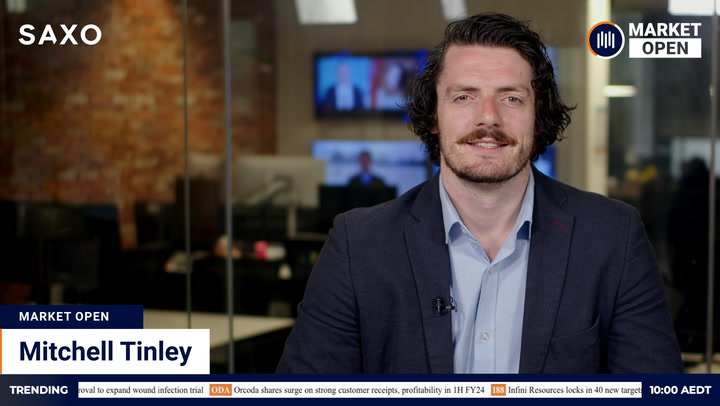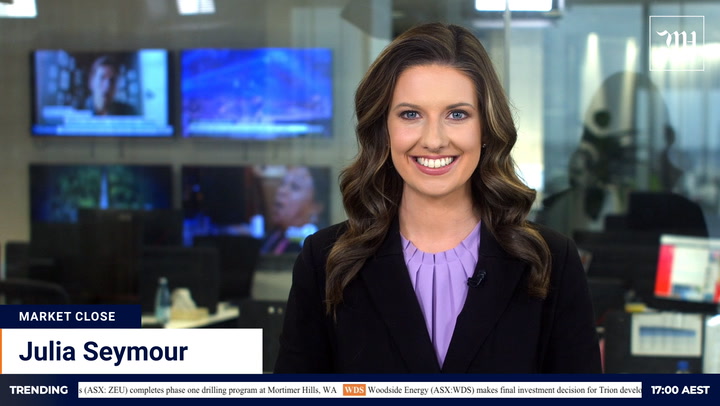The share market faces a second day of heavy selling after Wall Street succumbed to worries over inflation, surging yields and a looming deadline to raise the federal debt ceiling.
ASX futures sank 82 points or 1.13 per cent. The S&P/ASX 200 skidded almost 1.5 per cent yesterday as energy prices and the cost of borrowing jumped.
Overnight, gold sagged to a seven-week low. Iron ore fell for the first time in five sessions and oil for the first time in six.
Wall Street
US stocks closed sharply lower, led by declines in rate-sensitive sectors as a sell-off on bond markets accelerated.
The Nasdaq Composite tumbled 423 points or 2.83 per cent to its heaviest loss since March. The S&P 500 dropped 90 points or 2.04 per cent. The Dow Jones Industrial Average shed 569 points or 1.63 per cent.
“The big picture is the sudden surge in the past week of yields, which has led to a ‘sell first, ask questions later’ mentality,” Ryan Detrick, senior market strategist at LPL Financial, told Reuters.
The yield on ten-year US treasuries punched as high as 1.567 per cent overnight as traders prepared for the Federal Reserve to curb its bond-buying program. The ten-year yield traded close to 1.1 per cent as recently as last month.
Tech stocks become a punching bag when yields rise, due to a business model that relies on borrowing to fund growth. Microsoft, Facebook and Alphabet fell at least 3 per cent.
Fed Chair Jerome Powell warned overnight that inflationary pressures were likely to endure longer than the central bank originally expected. Powell told the Senate Banking Committee supply-chain issues were pressuring prices.
“As the economy continues to reopen and spending rebounds, we are seeing upward pressure on prices, particularly due to supply bottlenecks in some sectors,” he said. “These effects have been larger and longer lasting than anticipated, but they will abate, and as they do, inflation is expected to drop back toward our longer-run 2 percent goal.”
Also troubling investors was an approaching deadline to fund the federal government. Overnight, Senate Republicans blocked a bill to suspend the debt ceiling until next December and fund the government until this December. The federal government faces shutdown this weekend if the debt limit is not raised.
“The Washington goings-on certainly don’t help, as we have a lot of uncertainty around tax policy and of course the debt ceiling,” Jeff Buchbinder, equity strategist at LPL Financial, told CNBC.
Australian outlook
Batten down the hatches. Wall Street is in the midst of a repeat of the rates shock of earlier this year that put a temporary brake on the bull market. Bond traders are selling, yields are surging and equity traders are abandoning risk until they see how far this thing will run.
Ten of eleven US sectors declined during a general retreat from risk. Tech took the biggest hit, falling 2.98 per cent. Energy was the only sector to buck the sell-off, rising 0.46 per cent.
Traditional havens offer no relief during a rates tantrum. Healthcare fell 1.7 per cent, consumer staples 1.39 per cent, utilities 1.22 per cent and real estate 0.62 per cent. Gold touched its lowest level since the second week of August.
The ASX 200 front-ran the sell-off yesterday, but looks like testing multi-week lows. The medium-term downtrend that has developed since mid-August continues to firm. Any time the market has looked like breaking the trendline, down we go.
IPOs: a busy week continues with the listing of Touch Ventures at 11 am AEST. Touch is an investment holding company that provides companies with access to capital. Afterpay is the company’s largest shareholder.
The dollar retreated 0.54 per cent to 72.41 US cents.
Commodities
Iron ore trimmed four days of gains. The spot price for ore landed in China fell US$6.30 or 5.3 per cent to US$112.35 a tonne, but remained well above last week’s lows.
BHP‘s US-listed stock tanked 4.56 per cent and its UK-listed stock 1.63 per cent. Rio Tinto lost 2.53 per cent in the US and 0.57 per cent in the UK.
Oil logged its first decline in six sessions after breaking briefly above US$80 a barrel. Brent crude settled 44 US cents or 0.6 per cent lower at US$79.09 after rising as high as US$80.75.
“It is difficult to justify such prices when stagflation risks are on the rise and there is the potential for OPEC+ to ramp up its production,” Fawad Razaqzada, market analyst at ThinkMarkets, told MarketWatch.
Gold wilted to a seven-week low as the US dollar and yields firmed. Gold for December delivery settled US$14.50 or 0.8 per cent lower at US$1,737.50 an ounce. The NYSE Arca Gold Bugs Index inched up 0.06 per cent.
Copper dropped almost 1 per cent in the US to US$4.247 a pound.





